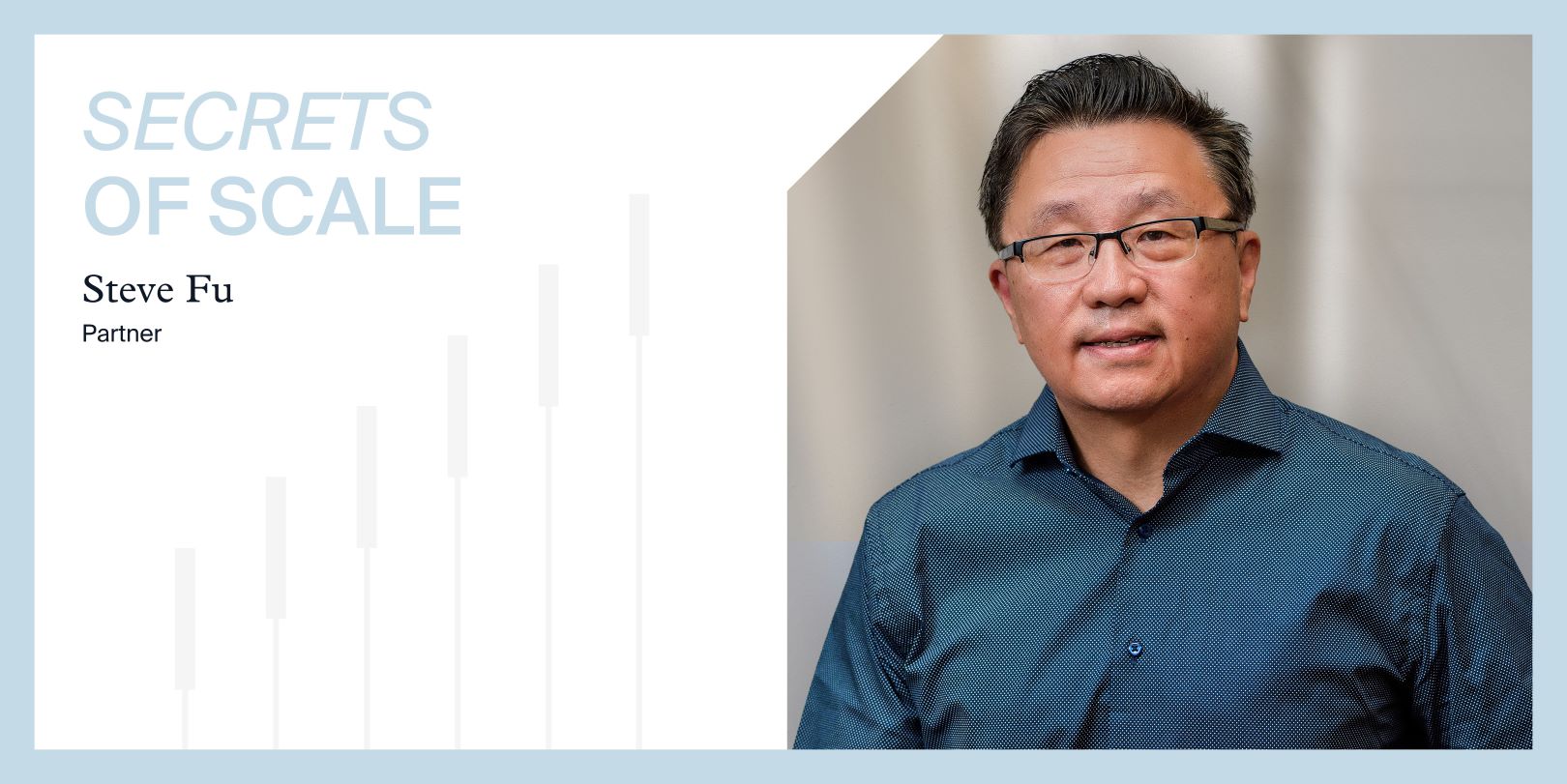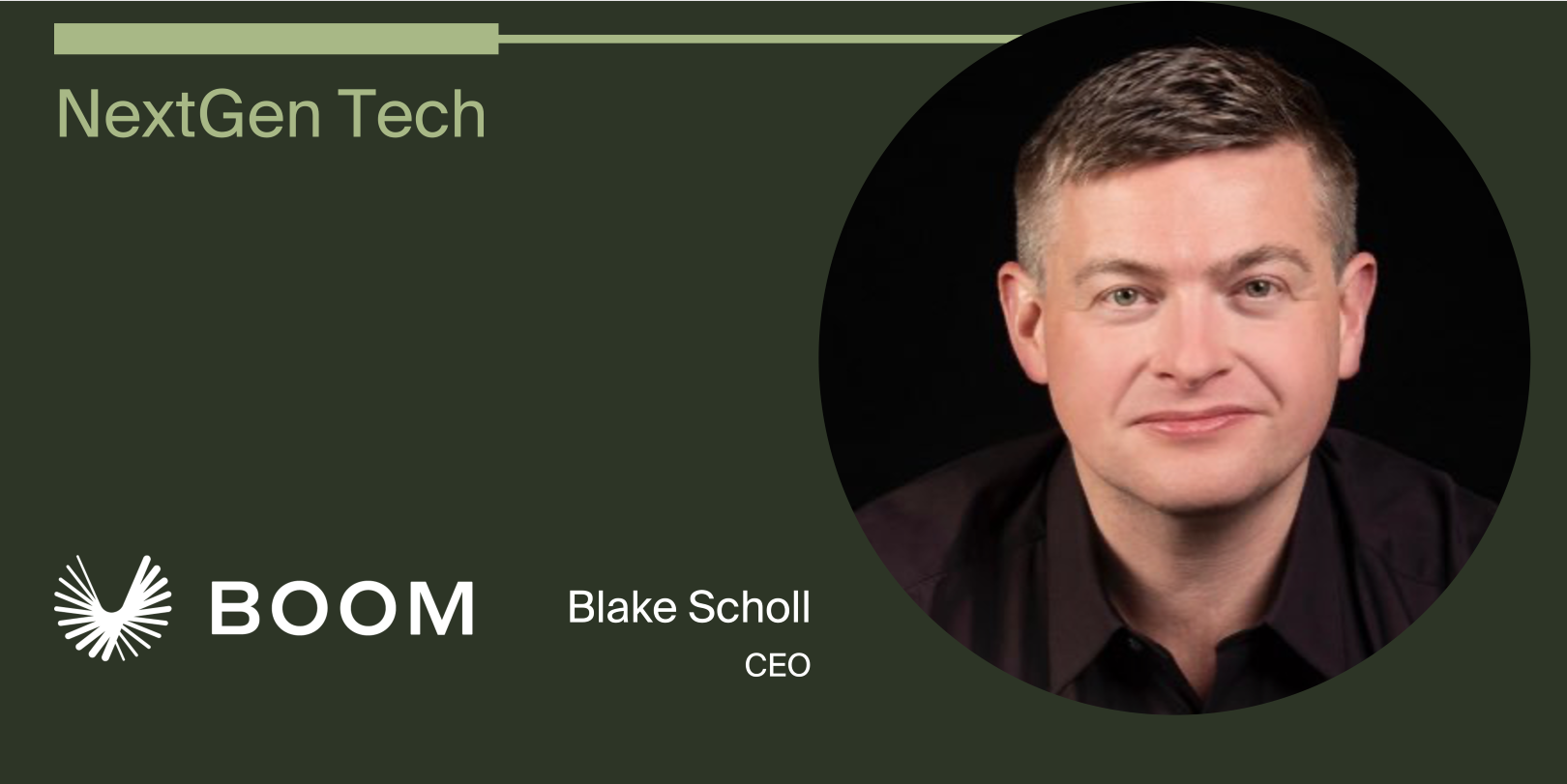Q&A with Partner Steve Fu
Q&A with Partner Steve Fu
Dr. Steve Fu has built a career appreciably increasing corporate value through technology investments and incubation, M&A, and restructuring. Before Celesta, he was the chief strategy officer of Fairchild Semiconductors, a recognized leader of power and energy management solutions. Steve led Fairchild’s central R&D teams, new business incubation, partnerships, restructuring, and acquisitions. Prior to this, Steve drove corporate strategy development at Maxim Integrated Products as well as VMware’s desktop virtualization business, a leading enterprise software company. During the last four years of Steve's eleven-year career at Cisco, he developed and executed strategies for Cisco’s strategic semiconductor practice and emerging technology, consumer, and China investments.

Dr. Steve Fu has built a career appreciably increasing corporate value through technology investments and incubation, M&A, and restructuring. Before Celesta, he was the chief strategy officer of Fairchild Semiconductors, a recognized leader of power and energy management solutions. Steve led Fairchild’s central R&D teams, new business incubation, partnerships, restructuring, and acquisitions. Prior to this, Steve drove corporate strategy development at Maxim Integrated Products as well as VMware’s desktop virtualization business, a leading enterprise software company. During the last four years of Steve's eleven-year career at Cisco, he developed and executed strategies for Cisco’s strategic semiconductor practice and emerging technology, consumer, and China investments.
What are the most important things for a founder to think about to build and scale a successful business?
Throughout my career, I have always preached to my team and to our portfolio companies that the first thing we must understand is the end application and the value you're offering to the end user. If we do that, we can create a business of value. Rather than a technology looking for application, you must connect those two things in the very early days.
Then the other critical piece is intellectual honesty. Intellectual honesty is critical.There will be many things you must prove out when you’re taking a technology from a concept all the way to a viable product. Success isn’t built on a single decision, but on a series of good decisions. When you make a bad call, have the honesty to admit it, recognize it, and change course. These are often painful decisions, but better to endure that than being overly prideful and continuing down the wrong path, which creates more problems later.
How do you approach supporting and advising founders and CEOs?
At a high level, I support companies I work with in my areas of expertise, which is the intersection of deep technology and product business strategies, that can create the largest market impact within the shortest amount of time. That said, there isn’t a single recipe for all. Some companies have very seasoned serial entrepreneurs who have done it repeatedly and know from previous experience what to do. In those cases, they may ask you for advice and critical exploration of new product directions. Or they might need introduction to the right contacts, either potential partners, customers, or executive hires.
For the first-time entrepreneurs, who are learning about the process of building the foundation for a great company, it’s often much broader. It's about how to operate in a way that drives speed and execution and establishing the right team and culture. I think the establishment of a culture that's unique to the start-up and focuses on a passion for their mission is super important. It reinforces a mindset that prioritizes the company over single individuals.
Can you share a bit about your professional journey to venture investing?
Throughout my career, I have consistently supported the incubation of disruptive technologies, relishing the hands-on approach to scaling products. My journey began at Stanford, where I co-founded Granite Systems, pioneering the world's most efficient gigabit switch. Our success led to an acquisition by Cisco, where I spent 11 years, completing my PhD with their support. Upon returning, I assumed the de facto CTO role of a thriving corporate development group. My expertise in M&A, strategic investments, and technology propelled me to join VMware to drive new business ventures beyond server virtualization.
In 2008, I left VMware to start VirNet, a startup focusing on network virtualization. This was followed by a corporate strategy role at Maxim Integrated, again focusing on new business formations. In 2013, I received an enticing offer from Maxim's former COO to join Fairchild as their chief strategy officer. This unique position encompassed central technology engineering, fostering the creation of new technology building blocks and incubating innovative products. It was a dream come true to not only formulate a strategy but also invest in it, transforming the company's focus towards compelling application solutions rather than marketing discrete components by function. It is with great pride that many of the incubations are now high-volume and margin products at ON, such as Silicon Carbide and Cloud power management products.
After a successful sale of that company, I sought a new challenge. Conversations with Lip-Bu Tan and Michael Marks led to an exciting opportunity at Celesta, where I could empower the next generation of entrepreneurs to realize their technological dreams.
Considering the current market downturn, is now a good time to invest in tech?
In 2001, we had a recession, and John Chambers at Cisco gave a talk to the executive leadership that I remember clearly to this day. He said, "During downturns are when we actually can assert our leadership in terms of market share and technology direction.” Rather than retreating, the downturn may be the best time to invest and incubate new technologies and new products. There tends to be more access to talent and focused companies, with the right visions who can leverage this time to increase their leads. We should also become more discerning during the downturn. We can continue to invest strongly but be selective in terms of the companies that we undertake. Having a strong syndicate of co-investors and using the money wisely rather than splurging is important.
How do you evaluate the potential of an early-stage company or piece of technology?
I tend to continually revisit my model that the CEO must have a clear picture of the technology and where it’s going. Even though the idea may still be early, they must be certain of how they can apply it. It may be an existing or rapidly emerging application, where we can transform the market.
Equally crucial is finding a CEO who has a very balanced view of the world in the sense that they recognize and acknowledge other competing companies, technologies, and products. A company that is staged for success, has a leader that is very intellectually honest in their analysis of the business and themselves.
“Success is built not on a single decision, but on a series of good decisions. When you make a bad decision, have the honesty to admit it, recognize it, and change course.”
When you think about AI, what tech trends should we look out for?
While some companies are simply wrapping existing models with a user-friendly interface, I'm drawn to those tackling the fundamental challenges of GenAI. These companies are playing the long game, developing solutions that can be seamlessly integrated into mission-critical enterprise applications. Our portfolio company Normal Computing is a great example. GenAI is not just a fad; it's a transformative force, akin to the advent of the Internet.
One often overlooked aspect of GenAI is the sheer computational power required to support these advancements. Our current data centers are not equipped to handle the exponential growth in GenAI workloads. We need a fundamental shift in data center design, one that seamlessly integrates processing and data management to meet the demands of this new era. GenAI is not just about algorithms; it's about creating a sustainable infrastructure to support its boundless potential.
Anything interesting that you've been reading lately?
Recently, I've been delving into the Japanese concept of Ikigai, which essentially translates to 'reason for being.' The concept encapsulates the idea of finding true fulfillment by aligning your passions, mission, and skills with what the world needs and what you can be compensated for. It's about discovering the sweet spot where your passions intersect with your purpose, your talents intersect with the world's needs, and your dedication can lead to financial reward.
This simple concept has resonated with me, and I've been sharing it with some of the companies we're invested in. Often, employees work tirelessly, but they lose sight of the 'why' behind their efforts. It's crucial to embark on this journey of self-discovery, to uncover the driving force behind our actions.






